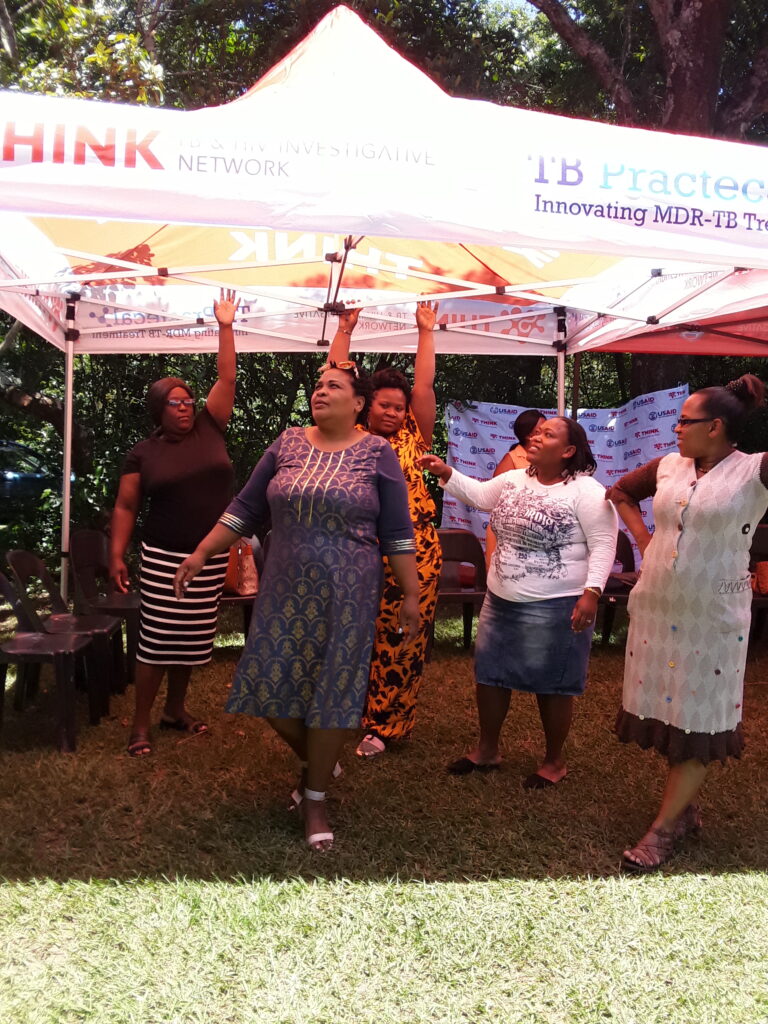The community advisory board (CAB) at the Doris Goodwin Hospital, located in Pietermaritzburg, South Africa, was established in 2015, with support from the STREAM trial. CAB Coordinator, Duduzile Lembethe, is part of the TB & HIV Investigation Network (THINK), and the CAB draws members from the Local Municipality, and Department of Health Traditional Health Practitioners & Community Care Givers (among others). The members are TB advocates who help raise awareness of TB and make complex information accessible to affected communities. The CAB has always valued partnership with the community and local organizations, which you can see from the number of stakeholder meetings (20+) and outreach events (30+) conducted by the CAB during the last few years.
The Pietermaritzburg CAB has always believed that CE leads to awareness of and meaningful participation in research. The CAB is well-connected to the community and has the knowledge and experience to contribute to important decisions about TB and research. In the last quarter, the Pietermaritzburg CAB focused on designing a program to battle TB-related stigma, conducting a series of activities to encourage advocacy from community members and promote treatment completion among people with TB. These activities had two phases: 1) a consultation meeting and 2) dialogue and training.

In Phase 1 of the initiative, the CAB gathered community leaders, city mayors, TB survivors, traditional healers and local health facilities to discuss TB stigma and the effects of stigma on various populations. They developed a program to empower CAB members and TB survivors to advocate and educate community leaders, health care workers, and the homeless about TB and stigma. The stakeholders identified the homeless community as a key population for this initiative, due to the challenges they face in accessing health care and their limited knowledge about TB – both of which affect their outcomes significantly. In addition, health care workers often have difficulty achieving good outcomes in this population, in part, due to misconceptions and limited knowledge about homelessness.
In Phase 2, task teams were formed and a training of trainers was conducted with CAB members and TB survivors to identify and understand the effects of TB stigma. Trained stakeholders then implemented the “Community Dialogue in TB response” initiative. The Community Liaison Officer Duduzile Lembethe states, “Task teams among the CAB were formed on advocacy issues like stigmatization of the homeless…We are training health care workers to not stigmatize the homeless when conducting TB screening and to facilitate a dialogue with TB survivors and TB patients to create awareness on stigma.” In addition, the homeless and their families were invited to be a part of the training so that they can help their loved ones adhere to TB treatment regimens. This is done in collaboration with the AIDS Foundation South Africa and STOP TB Partners.
In creating this TB stigma program, the Pietermaritzburg CAB acknowledged the importance of identifying key populations and tailoring interventions for those populations to increase the likelihood of successful behavior change. The stigma-fighting program created by the Pietermaritzburg CAB is an initiative that involves many aspects of CE including capacity building for CAB members, outreach for community education, and advocacy for key stakeholders and government leaders. This comprehensive initiative showcases the breadth of issues faced by people with TB and the power of the CAB to help address them.
The demonstrated success of the CAB’s work with other organizational partners to coordinate this comprehensive initiative within the community anchors them as a sustainable collaborator in the sector of TB advocacy, outreach, and community engagement.
